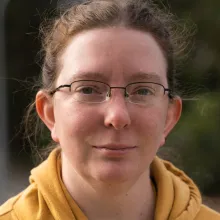Social media use, sleep problems, and mental health: The eMEDIATE study
Investigating longitudinal bidirectional relationship between problematic social media use, sleep problems, and mental health and their underlying mechanisms.
Project status
Project status
Current
Contact
Contact
Content navigation
About
Image

Over the last two decades, social media has become an important part of our daily life. According to Digital Report 2022 (Hootsuite, 2022), 4.62 billion people (58.4% of the world population) are active social media users and spend, on average, two hours and 27 minutes on social media daily.
From the beginning, behavioural scientists have been concerned about the possibility of problematic social media use (PSMU). PSMU has co-morbidity with mental health and sleep problems. However, evidence about the association between PSMU, mental health, and sleep is inconsistent. Therefore, there is a need to clarify the inconsistent evidence linking PSMU, mental health, and sleep. This research project aims to investigate the longitudinal bidirectional relationship between PSMU, sleep problems, and mental health and their underlying mechanisms.
This research project will include one baseline and three follow-up surveys via Qualtrics. Participants will be social media users from Australia and Bangladesh who are between 18 and 30 years old. This research project will explore missing links between the association between PSMU, motives for social media use, sleep, and mental health and clarify how these factors are related to each other, and will be helpful to develop recommendations to reduce social media dependency and improve sleep and psychological wellbeing among young adults.
Would you like to participate?
You are invited to participate in this research if you are aged between 18-30 years old, are using social media for at least one year or more, live in Australia or Bangladesh, and able to read and write in English/Bangla well enough to complete the survey:
English Survey
Bangla Survey
Research team
Oli Ahmed [Primary Investigator]
Ahmed is a PhD researcher at the National Centre for Epidemiology and Population Health (NCEPH) at the Australian National University. Prior to the enrolment, he worked as a faculty member in the Department of Psychology, University of Chittagong, Bangladesh. He published several journal publications in Q1 journals.
Professor Nicolas Cherbuin [Supervisor]
Cherbuin is Deputy-Head of the Department of Health Economics, Wellbeing and Society at ANU where he leads the Neuroimaging and Brain Lab. Over the last 16 years, his research has focused on identifying risk and protective factors for cognitive physical, cognitive, and mental health, with a particular interest in quantifying the impact of modifiable risk factors including lifestyle, chronic diseases and environmental exposure on brain structure, cognitive function, and wellbeing.
Dr. Amy Dawel [Co-supervisor]
Dawel is a senior lecturer at Research School of Psychology over 12 years of experience conducting individual differences research across the lifespan, combining cognitive experimental methods with survey research (e.g., mental health and personality variables).
Dr. Erin Walsh [Co-supervisor]
Walsh is a research fellow at the Population Health Exchange (PHXchange), National Centre for Epidemiology and Population Health (NCEPH), ANU. Her areas of expertise are Visual Arts, Neurosciences, Data Visualization and Computational (Incl. Parametric and Generative) Design, Public Health, Psychological Methodology, Design and Analysis, and Psychology of Aging.



